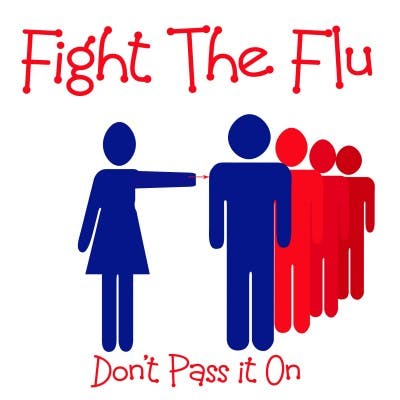By Adam-Paul John Tuzzo
While some states are clamoring for stricter laws concerning mandatory influenza vaccinations, some lawmakers in Wisconsin have taken the opposite approach.
A public hearing was held on Nov. 13, 2013 regarding Assembly Bill 247, which would prohibit Wisconsin employers – including health care employers – from demoting, suspending, firing or discriminating against employees who refuse a seasonal influenza vaccination.
What the bill would do
The bill would also prohibit employers from:
- Refusing to hire or renew the contract of someone on the basis of their seasonal flu vaccination status;
- Requiring an employee or contractor to receive a flu shot if the individual refuses to accept it; and
- Requiring unvaccinated employees or contractors to wear masks as punishment for refusing flu shots (although health care employers may require unvaccinated employees to wear certain types of protective masks).
If the bill is enacted, Wisconsin employers would be required to inform individuals in writing that they may refuse the vaccination without risking discrimination for doing so. Additionally, employers would be required to offer employees or contractors written information discussing the risks and benefits of receiving the vaccine prior to its administration.
The bill allows employers to satisfy this requirement by offering employees the federal Centers for Disease Control and Prevention informational statement describing the type of vaccine being administered.
No reliable evidence that flu shots are unsafe
Should the bill become law, employers requesting their employees or contractors receive flu shots would be required to arrange for the vaccination at no cost to the person receiving it. Those showing signs of seasonal influenza could be required to leave the workplace.
Understandably, the bill has met stiff resistance from the state’s Department of Health Services and at least 20 health care organizations. While Wisconsin does not have a mandatory flu vaccination statute for employees whose jobs routinely expose them to the flu virus, many health care organizations have implemented such policies as a means of improving patient care and protecting their staff and patients.
The Wisconsin Department of Health and Human Services agrees that flu vaccines reduce work absences among hospital employees, reduce patient mortality rates and cut operating costs. There is also no reliable evidence that flu shots are unsafe for the average individual.
The sponsors of the bill reportedly believe it is necessary to protect the interests of health care workers who do not want to receive the flu vaccine, for any reason.
An argument for the legislation
Chief sponsor Jeremy Thiesfeldt has stated:
Much controversy has been growing nationwide as to the plight of employees, particularly health care workers, being dismissed from their jobs due to their refusal to accept such an unwanted intrusion into their personal health care decisions.
I fully recognize this argument pits two groups advocating a position based on rights against each other. Employers, primarily health care providers, have begun to demand flu vaccinations of employees, with extremely limited exceptions, as a fundamental right of an employer. Individuals who object will fall back on individual liberties with the choice to make their own personal health care decisions without the threat of dismissal.
While both arguments have merit, I fall on the side of personal liberty.”
If the bill passes, Wisconsin health care employers will need to carefully design and implement flu shot policies to avoid unnecessary liability and expense. We will continue to keep you updated as events occur.
This was originally published on Littler Mendelson’s Health Care Employment Counsel blog. © 2013 Littler Mendelson. All Rights Reserved. Littler®, Employment & Labor Law Solutions Worldwide® and ASAP® are registered trademarks of Littler Mendelson, P.C.
